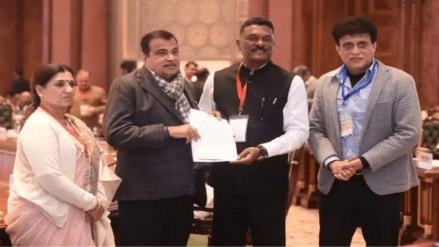The proposed cable car project in the Mumbai Metropolitan Region (MMR) received in-principle approval from Union Road Transport and Highways Minister Nitin Gadkari on Tuesday. Maharashtra Transport Minister Pratap Sarnaik shared the update following a meeting of state transport ministers in New Delhi.
Highlighting the project’s potential to transform urban transportation in MMR, Sarnaik presented the proposal during the meeting. The project aims to address the challenges posed by growing urbanisation and the increasing strain on public transport infrastructure.
Public-Private Partnership Model
According to Sarnaik, the cable car system will be executed through a public-private partnership (PPP) model or joint financial collaboration between the central and state governments. Gadkari has instructed V Umashankar, Secretary of the Ministry of Road Transport and Highways, to initiate a survey and prepare a Detailed Project Report (DPR).
The project is envisioned to ease pressure on the existing public transport network, which spans the MMR from Palghar to Uran-Pen in Raigad district. The aerial cable car system is seen as a sustainable and efficient alternative to traditional transport modes, particularly in reducing travel time between suburbs and Mumbai Airport.
Integrated Transport System
Union Minister Gadkari emphasized the importance of developing an integrated transport system to address the region’s congestion and pollution challenges. Sarnaik stated that a comprehensive transport plan, incorporating the cable car system and other innovative solutions, will soon be presented for further consideration.
A detailed survey to assess the technical and financial feasibility of the project will begin soon, with findings to be included in the DPR.
Transforming Urban Mobility
The cable car project is expected to alleviate traffic congestion, reduce emissions, and provide a reliable alternative for commuters. Sarnaik expressed optimism about the project’s transformative impact, stating, This initiative will revolutionize transportation in the MMR and address pressing challenges like traffic congestion, pollution, and infrastructure gaps.
